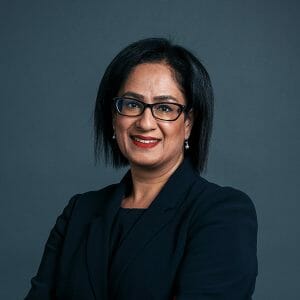Abortion clinic buffer zone PSPO upheld by High Court
Planning and Environment, Public Law and Judicial Review
The High Court has dismissed a challenge to a Public Space Protection Order (“PSPO”) made by the London Borough of Ealing, which prohibits protests and vigils from taking place within a “safe zone” outside a Marie Stopes clinic where abortions are performed.
Today’s judgment will be of considerable interest to local authorities across the country, providing invaluable advice as to the tests to be applied when making PSPOs and the appropriate intensity of review by the court on a challenge, particularly when a PSPO engages fundamental rights.
Various pro-life groups have held protests and vigils outside the Marie Stopes clinic on Mattock Lane, Ealing for many years. Since 2015 a pro-choice group had held regular counter-protests outside the clinic. After receiving a public petition regarding the activities of the Pro-Life groups, Ealing Council conducted a lengthy process of investigation at the clinic with its staff and service users, engagement with local residents living in the vicinity, discussions with various relevant stakeholders, and a public consultation exercise. It also negotiated with pro-life and pro-choice groups but failed to agree a mutual accommodation.
On 10 April 2018 the Cabinet of the Council voted to introduce a PSPO under s. 59 of the Anti-social Behaviour, Crime and Policing Act 2014. In broad terms it creates a “safe zone” around the clinic where all groups are now prohibited from gathering, protesting or communicating their respective views about abortion. However small groups of activists are permitted to continue their activities within a “designated area” approx. 100m away.
Section 59 of the Anti-social Behaviour, Crime and Policing Act 2014 gives power to a local authority to make a PSPO if satisfied on reasonable grounds that two conditions are met. The first condition is that “activities carried on in a public place within the authority’s area have had a detrimental effect on the quality of life of those in the locality, or it is likely that activities will be carried on in a public place within that area and that they will have such an effect”. The second condition is that the effect, or likely effect, of the activities (a) is, or is likely to be, of a persistent or continuing nature, (b) is, or is likely to be, such as to make the activities unreasonable, and (c) justifies the restrictions imposed by the notice”.
Section 66 of the Act entitles an “interested person” (defined as “an individual who lives in the restricted area or who regularly works in or visits that area”) to apply to the High Court to question the validity of a PSPO on grounds that the local authority did not have power to make it, or to include particular prohibitions or requirements imposed by the order, or that a requirement of the Act was not complied with.
The Claimants challenging the PSPO are associated with the Good Counsel Network, a pro-life group which held vigils and claimed it offered women support outside the clinic. The First Claimant attends the vigil and the Second Claimant is employed by GCN as a “vigil leader”. They argued (amongst other matters) that the PSPO was based on inadequate evidence and was too broadly drawn, and that it represented an impermissible interference with their rights to freedom of religion, expression and assembly under Articles 9, 10 and 11 ECHR. These arguments were all dismissed in today’s decision.
Accepting Ealing’s submissions, Turner J. held:
a. “Detrimental effect” is not defined by the statute. The court should not attempt to introduce a definition or lay down a threshold level of conduct with reference to intimidation, harassment, alarm or annoyance, etc [31].
b. It is for local authorities to judge what amounts to ‘detrimental effect’: there is no requirement for that assessment to consider only ‘objective’ or ‘reasonable’ detriment. The impact of behaviour on vulnerable people deserves just as much weight as that of a robust or ordinary person [34-36].
c. “Those in the locality” may include persons who only visit an area occasionally, such as tourists or (in this case) people using services at the clinic [40-42].
d. Activities may be addressed within a PSPO notwithstanding that it is not ‘proven’ that a detrimental effect actually occurred. The power to make PSPOs and the requirements of public consultation are not subject to a burden of proof or rules of evidence. It is enough that there is a “considerable tranche of evidence and information … of activities which many would reasonably consider to be fully capable of having a detrimental effect on the quality of life of those who were exposed to them” [52-54].
On the convention rights challenge, it was held that although the court should not substitute its own view of the merits of the decision to introduce a PSPO, it was appropriate to conduct a full proportionality review of the order [27].
Turner J. found that the Article 8 rights of women accessing the clinic were engaged by the protests [61]. Thus the PSPO had the legitimate aim of seeking to protect the rights of others, in particular the Article 8 right to privacy held by the service users, which must be balanced against the rights of the Claimants to express their religious beliefs and engage in protest. However and in any event, as the Claimants’ stated aim is primarily to persuade women not to have an abortion, the court doubted whether their activities were in fact an expression of their religious views [67].
Further, the court agreed that it would have been unworkable or impracticable for Ealing to use alternative measures to address issues at the clinic, such as injunctions, Community Protection Notices or criminal prosecution [79-84]. It was also absurd to suggest that the PSPO could have distinguished between the different types of groups outside the clinic [86].
It was emphasized that this decision does not permit local authorities to impose PSPOs outside all abortion clinics as a matter of course: each case will turn on its own facts [99]. However local authorities should note that:
a. The court endorsed the principle that ‘buffer zones’ may be lawfully established outside clinics notwithstanding that they may significantly restrict religious and/or protest activities.
b. It is of crucial important to strive for a balance between the competing interests of clinic users, local residents and protesters. In this case the PSPO is limited to a period of 3 years, will be reviewed after 6 months, applies only within a defined limited area, and permits the continuation of protest activities within the “designated area”.
c. The evidence base and consequent consultation process require careful preparation by any local authority contemplating a similar order within their district.
d. The judgment also quotes at length from the Council’s report to Cabinet, and demonstrates the importance of seeking early legal advice on alternative options, convention rights and the equalities implications.
A copy of the judgment is available here. Turner J also today refused permission to appeal.
Kuljit Bhogal and Tara O’Leary represented LB Ealing.
This challenge is only the second of its kind to come before the High Court. Kuljit also successfully acted for the local authority in the first challenge, Summers v LB Richmond Upon Thames [2018] EWHC 782 (Admin). She advised Ealing – and has advised numerous other local authorities – on consultation, investigation and decision-making related to PSPOs.


